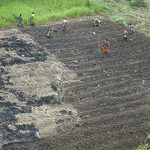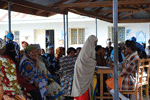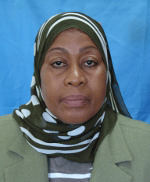Tanzania
Published on Thu, 2014-05-15 09:21
The participants in the civil society strategy meeting on monitoring and accountability organized by Social Watch last february in Montevideo were asked about how they personally work and relate with the huge task of making the powerful accountable. Here is what they said: |
| Published on Fri, 2013-02-22 06:11 |
Published on Thu, 2013-02-21 17:41
Tanzania is endowed with abundant natural resources but lacks mechanisms for utilizing them effectively for micro and macro development. Invitation to foreign and local companies to invest in key economic sectors is yet to yield expected results. For instance, incentives and tax evasions are so high. The government is therefore urged to diversify the economy and find more viable and alternative sources of revenues for economic development. |
|
Tanzania is endowed with abundant natural resources but lacks mechanisms for utilizing them effectively for micro and macro development. Invitation to foreign and local companies to invest in key economic sectors is yet to yield expected results. For instance, incentives and tax evasions are so high. The government is therefore urged to diversify the economy and find more viable and alternative sources of revenues for economic development.
|
|
Published on Fri, 2012-03-16 10:19
In terms of gender equity Tanzania places itself above the Sub-Saharan African average and most of its neighbours. |
Published on Tue, 2012-03-06 11:22
The Southern African Human Rights NGO Network (SAHRINGON) Tanzania Chapter, national focal point of Social Watch, has urged the government to amend or repeal all discriminatory laws based on gender for the country to achieve the equality between men and women provided by the Millennium Development Goals (MDGs), reported Tanzanian newspaper The Guardian. |
|
Food insecurity and poverty are the main challenges Tanzania faces today. Environmental issues such as deforestation, desertification, soil erosion and air pollution are not given appropriate attention by the Government, while small farmers continue to be displaced by foreign enterprises and the country’s resources are exploited nearly to depletion. Inadequate and unsustainable policies, inappropriate technologies and insufficient rural infrastructure and institutions – combined with factors such as desertification, deforestation and the high incidence of pests and diseases – have led to increasing poverty, food insecurity and stalled development. If the present policies are not corrected, Tanzanians will be doomed to more poverty and hunger.
|
Published on Thu, 2011-12-01 08:57
Tanzanian civil society organizations are unhappy with the government’s failure to ratify some international agreements that should guarantee the promotion of people’s development, said Armando Swanya, from the Southern African Human Rights NGO Network (SAHRiNGON), focal point of Social Watch in that country. Swenya cited the International Convention on Economic, Social and Cultural Rights of 1976, which the government of Tanzania had not ratified yet. This and other international agreements are important in pushing ahead efforts to fight against poverty, he said. |
|
Published on Fri, 2011-04-15 07:56
Source: Article by Edwin Agola (The Guardian) |
|
Published on Mon, 2010-11-01 11:16
Two of Social Watch's focal points in Africa: SODNET, from Kenya and Sahringon from Tanzania have come together to share techology tools to monitor elections in Tanzania that took place 31st October 2010. SODNET's experience in monitoring the kenyan referendum on August 4, 2010 with notable results was key to develop the software platform named UCHAGUZI TZ. |
SUSCRIBE TO OUR NEWSLETTER






